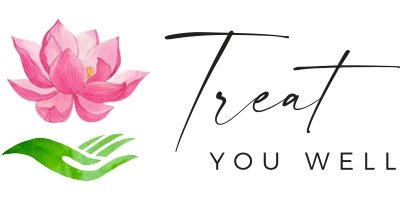Massage Therapy
FAQ
1. Why should I get a massage?
Massages are a great way to help you to relax and relieve pain. It can also relieve muscle tension and may improve blood flow, as well as restore mobility in the joints.
2. Risks
Under normal circumstances, massages are considered safe. But talk to your doctor before you get a massage if you:
Have open wounds.
Have bruises or areas of weak skin.
Have a blood clot in a vein.
Have a: bleeding disorder; low blood platelet counts; or take medication (called a blood thinner) that prevents blood clots.
3. Will Massage cause me more pain or soreness?
Normally the therapist will apply a moderate amount of pressure to the body that the tissues need to return to their normal state. However, some people may find this to be too intense of an experience. If you feel any discomfort during a treatment, make sure to let the therapist know. What you do at home after a treatment is essential to expediting your recovery.
4. Things you should know before coming for a treatment
I. Stay hydrated. Please drink a sufficient amount of water a few days before your treatment.
II. If you have not had a massage for a long time, you may want to take a couple of Epsom Salt baths to help release some toxins and wastes that are trapped in between your soft tissues through sweating.
III. Don’t starve or go on a diet. You should eat something light to make sure you have some energy to expend.
5, At Home Care After Receiving a Treatment
a) It is essential to drink water after a treatment. Massage helps to increase circulation and blood flow. Increasing your water intake helps to flush toxins out of the body faster through urination.
b) Some people will feel sore after the massage, especially if they have been sedentary for a period of time. Another reason for soreness might be from your massage therapist working deeply to break up lactic acid or trigger points in your body, or if a client fails to drink enough water.
c) Wait 2-3 hours after massage if you want to take a hot/warm bath. Epsom Salt contains 2x unique ingredients, i.e. Magnesium and Sulfate. Magnesium helps to reduce inflammation, soreness, relax muscles and Sulfate helps flush toxins.
d) Increase perspiration through soaking into hot Epson salt baths. Use 3 cups of Epson Salt and 1 cup of baking soda. Soak in the tub for 20-30-min. Do it for 2x consecutive nights following a treatment.
e) (Remarks: People with hypertension, you may want to adjust the water temperature and soaking time because you may not want your blood pressure out of sudden shooting too high and cause dizziness).
g) Resting is key to help tissues regenerate and repair faster. Light stretching or walking are good ways to increase circulation during this time.
h) After a massage, you should avoid smoking and alcohol. Remember that because massages improve circulation, alcohol and nicotine will have a stronger effect on your body after a massage session.
i) Keep warm after massage. Your pores are opened after a massage. You should cover up to avoid letting any wind or cold get into the body. In Traditional Chinese Medicine (TCM), the wind door entering into our body easily is from neck & shoulders. It is essential to cover up both locations especially in cold and/or windy days.
j) Get a good night’s sleep. Suggest latest bedtime is 11:00 pm and sleep straight 8-hour. It has a proof that sleeping in the darker room the body detox more effectively at night. Tissue regenerates for repairing is more sufficient.
k) In TCM or the Biological Clock of the body, 11:00 pm – 1:00 am is the Gallbladder time, 1:00 am – 3:00 am is the Liver time. Qi and blood pass through their meridians to the organs are at their peak. 11:00 pm – 3:00 am is very crucial for both organs to detox and recharge so they could have a fresh start next day. Gallbladder is an associate organ for Liver. Both organs are essential for digestion and breaking down cholesterols, fats and greasy/oily food. In TCM, Liver is also governed the “SINEWS” which means it is related tendon, ligament and joint capulse. Health of Gallbladder and Liver have a big impact on the overused or overworked muscles syndromes, especially the problem involved with tendons, ligaments and joints (e.g. tendonitis, tendon/ligament sprain or strain and tear, frozen shoulder, carpal tunnel, tennis elbow, golf elbow and etc…)
